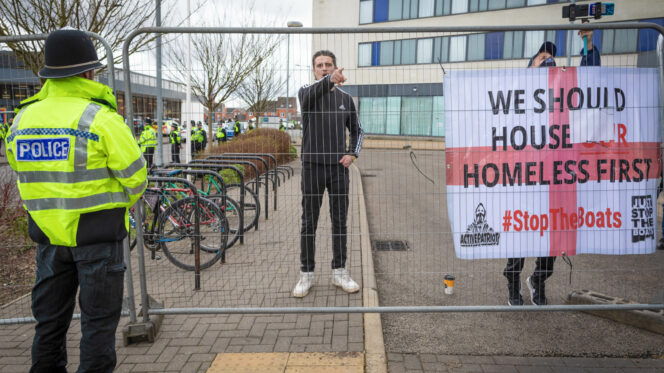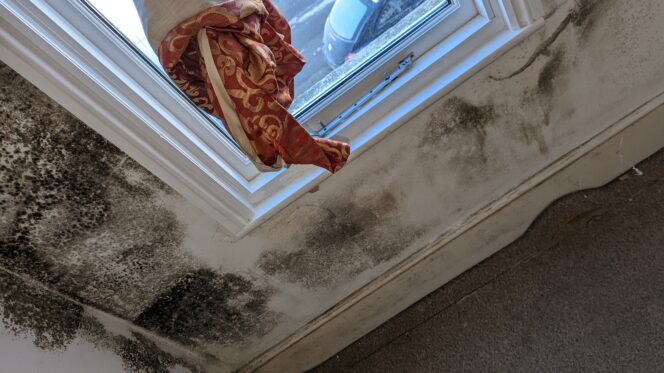No Number of Complaints Could Have Saved Mizanur Rahman
The government is trying to blame renters for the housing crisis.
by Rivkah Brown
13 March 2023

The Gary Lineker saga is not the only event of recent days to expose how few fucks the Tories give about the phrase “never again”. For as Suella Braverman poses for Holocaust Memorial Day while expediting another such atrocity (and clutching her pearls at anyone who dares to say so), history has been busy repeating itself elsewhere. In 2017, after 72 people burned to death in a north Kensington tower block, the Tories vowed it would never happen again: “We cannot and will not ask people to live in unsafe homes,” declared then-prime minister Theresa May. Yet years of Tory inaction since then have made another Grenfell inevitable – and last weekend, one very nearly materialised.
In the early hours of 5 March, a fire so severe it took 30 firefighters two hours to control it broke out in the Maddocks House estate in Shadwell, east London. Its source was a flat that had only two bedrooms yet housed 18 people, mostly Bangladeshi students and delivery drivers (it’s suspected the trigger was a faulty e-bike battery). Between them, the men paid around £8,000 a month for the privilege of being packed into bunk beds in mouldy, airless bedrooms. One of them, 41-year-old Mizanur Rahman, died in hospital from his injuries. It’s a miracle the others all survived.
The next day, the embers of the fire having scarcely died out, Michael Gove’s department for levelling up, housing and communities announced a new campaign. Entitled ‘Make Things Right’, it promises to “empower” social tenants to complain about “rogue landlords”; the government has even created a “bespoke website” to enable them to do so more easily.
The campaign is designed to trail the new social housing bill currently in its third reading in the commons, whose measures include a new complaint handling code for the housing ombudsman as well as a self-assessment for landlords to mark their own homework on complaint handling. It seems the government has found a miracle solution to the housing crisis – to complain about it. Why didn’t we think of that earlier?
The problem is, Rahman, his housemates and neighbours had repeatedly complained about the conditions in their flat for over a year before the fire – and were repeatedly ignored. No amount of complaining, no amount of carefully completed ombudsman forms nor strongly worded council letters, could have saved Rahman, because you cannot Karen your way out of a slum.
Gove’s new campaign is the latest in a long line of Tory attempts to blame renters for the housing crisis, itself part of the quintessential Tory strategy of blaming the poor for their own poverty. In February, it emerged that under new plans, the government would consider “behavioural factors”, such as a “stoic and often embedded attitude” to the cold, when deciding whether to sanction slumlords. The news came days after an inquest found that two-year-old Awaab Ishak had been killed by toxic mould in his family’s council house. His father had previously tried to “make things right” with the local housing association, to no avail. Perhaps he ought to have opened a window.
Understanding renters as Karens presumes that, like the mythic middle-class white American woman, renters are customers in a free market, and the customer is always right. The UK’s housing market could not be further from this. Instead, it is more akin to a planned economy, but planned to turn homeowners into feudal overlords and renters into a permanent underclass. The Maddocks House flat was at the sharp end of this hellscape, its inhabitants some of the most marginalised people in our society – people whose fears of complaining to their landlord might realistically include not only eviction but also deportation and imprisonment.
Renters will and do accept unsafe housing as long as it is their only option, however much governments might limp-wristedly attempt to regulate it out of existence. Tower Hamlets council had, despite locals’ complaints, awarded Rahman’s landlord a house of multiple occupation (HMO), a certification supposed to regulate overcrowding. But as long as rents in London continue to skyrocket, people like Rahman will continue to cram themselves into housing that landlords will continue to offer illegally. It’s a situation not dissimilar to the migrant crisis: while there are people willing to board small boats to seek better lives for themselves, there will be people willing to transport them here. No number of “pushback” operations will deter them; only better standards of living could do that.
There are genuinely effectively steps the Tories could take and they are right under their noses. For a start, they could make good on their repeated promise to scrap section 21, which allows landlords to put renters onto the streets for no reason whatsoever, terrorising millions of renters into silence. They could introduce rent controls as Scotland has done, ensuring renters aren’t forced to accept squalid housing because they can’t afford anything else. They could fine landlords who let out dangerous housing – in fact, councils already have these powers, but between 2018-21, a quarter of London councils did not use them even once. Renters’ unions are beginning to force action – the London Renters Union recently made Hackney council commit £400,000 to housing safety enforcement. Not making tenants “know their rights” or perform long-winded complaints processes, but putting the ball back where it should be: squarely in the court of those in power.
Rivkah Brown is a commissioning editor and reporter at Novara Media.


